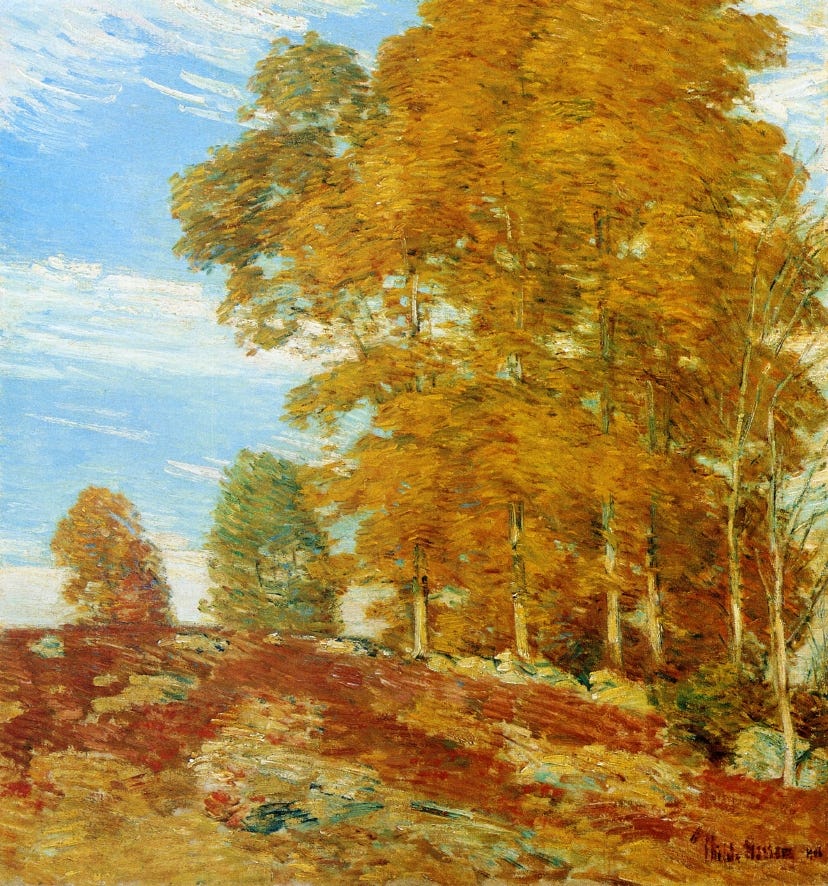The Digest #166
The media landscape, Dollar General's meltdown, The written word, Damodaran on Instacart, The human condition, Herb Kelleher, Merger arbitrage, and more ...
Warren Buffett on Inflation — A Three-Part Series
I’ve been studying Warren Buffett’s commentary on inflation during the 1970s and early 1980s. In last week’s digest, I included a link to the first article in a series which focuses on the interest rate environment of early 1970. In the second article, I describe difficulties in Berkshire’s automobile insurance group during the mid-1970s related to rapid inflation in medical payments and repair services. The third and final article is about the benefit of owning capital-light businesses during periods of high inflation.
The Current Media Landscape
“The role that newspapers played in this country has been absolutely remarkable. The Fourth Estate functioned for decades like another, almost better form of government in which many newspapers were run by people of the highest ethical standards and a genuine sense of the public interest. With newspapers dying, I worry about the future of the republic. We don’t know yet what’s going to replace them, but we do already know it’s going to be bad.”
— Charlie Munger, September 2014
We have a better idea of what’s replacing newspapers nearly a decade later. Charlie Munger was absolutely correct: It is bad. Very bad. Social media doom-scrolling has become the primary source of “news” for many Americans. With few exceptions, the mainstream media is now a shrunken shadow of its former role as a check on powerful institutions including federal, state, and local government.
Individual writers who are not backed by media companies cannot fully replace what has been lost but it is nonetheless heartening to see the growing number of high quality publications on Substack. Although most of the bestselling non-fiction publications should be classified as editorial rather than straight news, the ecosystem bodes well for the future of long form writing in general and journalism in particular.
So far, Substack has resisted pressure to censor the content of writers on the platform. This is in sharp contrast to platforms such as X/Twitter and Meta’s Threads. As a result, a very wide diversity of viewpoints are represented on Substack, including some that will offend the sensibilities of most readers. This is as it should be. Free speech is guaranteed to result in some speech that you find offensive.
The Substack platform far from perfect. However, the network effects are very real and independent writers are earning money directly from subscriptions, in many cases enough to support writing on a full-time basis. This provides a small glimmer of hope in an otherwise depressing media landscape.
Articles
Why Dollar General Might Just Be the Worst Retail Job in America by Josh Eidelson and Brendan Case, September 20, 2023. Dollar General’s stock has taken a beating as the company’s latest report revealed difficult business conditions during the second quarter. Predictably, Wall Street analysts downgraded the stock after it had already declined by fifty percent from its highs. And when it rains, it pours … This article highlights disturbing operational issues at certain Dollar General stores. However, in a company with nearly 20,000 locations, it is inevitable that many will have serious problems. Whether the problems are systemic is the main question. (Bloomberg)
I wrote two articles about Dollar General this month:
Dollar General: Value or Value Trap?, September 4, 2023. This is a brief overview of the company written in the aftermath of the second quarter earnings report. The article is for paid subscribers with a free preview.
There’s Always a Reason, September 21, 2023. Last week, I visited a Dollar General and a Family Dollar in a small town. This is a free article.
Warren Buffett Q&A Transcript || 1994 at UNC by Kingswell, September 26, 2023. The majority of this interview has to do with investing, but Warren Buffett also made an observation regarding the benefits of writing: “If you understand an idea, you can express it so that other people understand it. It’s interesting, I find that every year when I write the [annual] report, I hit these blocks. And the block isn’t because I had run out of words in the dictionary, the block is because I haven't got it straight in my own mind yet. There’s nothing like writing to force you to think and get your thoughts straight.” (Kingswell)
The Written Word by Morgan Housel, September 26, 2023. “Don’t overthink it. Just start writing. Great musicians find their music in jam sessions – unstructured, no planning, just seeing what happens. I think good writing is the same. If you think about it too much, you’ll be stuck. Start with one brave sentence and see where it goes.” (Collaborative Fund)
Walled gardens mean online writing is dead. Long live online writing! by Erik HoelSeptember 20, 2023. The author argues that “federated networks” such as Reddit and Substack will win in the long run. “At a high level, social networks are evolving into one of two types: either they are large but high-walled gardens, with a covetous boundary drawn around the entirety of the network (Tik Tok, Facebook, Instagram, now X), or alternatively they are federations, which instead draw many internal boundaries and create a confederacy. Federated networks offer a kind of decentralized centralization.” (The Intrinsic Perspective)
Putting the (Insta)cart before the Grocery (horse): A COVID Favorite's Reality Check! by Aswath Damodaran, September 19, 2023. This is a great analysis of Instacart, a service that I have never used. In addition, the article covers the difficult economics of the low margin, highly competitive grocery industry more generally. For an intermediary, the low-margin nature of the grocery business creates significant challenges: “If you are an intermediary in a business with slim operating margins, as Instacart is, the low operating profitability of the grocery business will limit how much you can claim as a price for intermediation, in service fees.” (Musings on Markets)
Why I Write About the Human Condition by Lawrence Yeo, September 2023. “The reason why I write about the human condition is because it’s the only thing that stays constant across time. Using the classic ‘fixed vs. variable business expenses’ as a model here, the consequential variables are culture and technology. … But the fixed part is good ole human nature.” (More to That)
Why Luck Isn’t Real by Nick Maggiulli, September 26, 2023. Of course luck is real, but for many reasons, it may be better to live as if luck does not exist. “But, if luck isn’t real, then you can ask yourself, ‘Where did I go wrong?’ and ‘How can I change it?’ You could learn something from even the most unfortunate of events.” (Of Dollars and Data)
The Equinox Is Not What You Think It Is by Phil Plait, September 22, 2023. “The equinox is not when day and night have equal lengths. Instead it’s something more nuanced but no less glorious” (Scientific American)
Podcasts
Behind the Memo - Fewer Losers, or More Winners?, September 20, 2023. 30 minutes. “In the latest episode of Behind the Memo, Howard Marks discusses his recent memo: Fewer Losers, or More Winners? He details the inspiration for the memo and explains why investors – like tennis players – need to consider their skill level, aspirations, and risk tolerance when asking themselves a fundamental question: Should I go for more winners, or try to avoid the losers?” (Oaktree Capital)
Herb Kelleher (Southwest Airlines), September 26, 2023. 47 minutes. This podcast is based on two books about Herb Kelleher, the colorful character who founded Southwest Airlines and brought cheap airfare to leisure travelers. (Founders Podcast)
Merger Arbitrage: Spirit Airlines vs. Albertsons, September 20, 2023. 48 minutes. Geoff Gannon and Andrew Kuhn discuss merger arbitrage using Albertsons and Spirit Airlines as current examples. (Focused Compounding)
If you found this article interesting, please click on the ❤️️ button and consider sharing it with your friends and colleagues.
Thanks for reading!
Autumn Hilltop

Frederick Childe Hassam (October 17, 1859 – August 27, 1935) was an American Impressionist painter, noted for his urban and coastal scenes. Along with Mary Cassatt and John Henry Twachtman, Hassam was instrumental in promulgating Impressionism to American collectors, dealers, and museums. He produced over 3,000 paintings, oils, watercolors, etchings, and lithographs over the course of his career, and was an influential American artist of the early 20th century.
Copyright, Disclosures, and Privacy Information
Nothing in this article constitutes investment advice and all content is subject to the copyright and disclaimer policy of The Rational Walk LLC.
Your privacy is taken very seriously. No email addresses or any other subscriber information is ever sold or provided to third parties. If you choose to unsubscribe at any time, you will no longer receive any further communications of any kind.
The Rational Walk is a participant in the Amazon Services LLC Associates Program, an affiliate advertising program designed to provide a means for sites to earn advertising fees by advertising and linking to Amazon.com.




